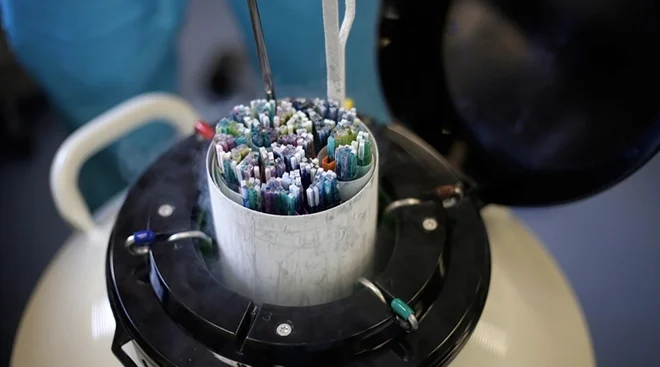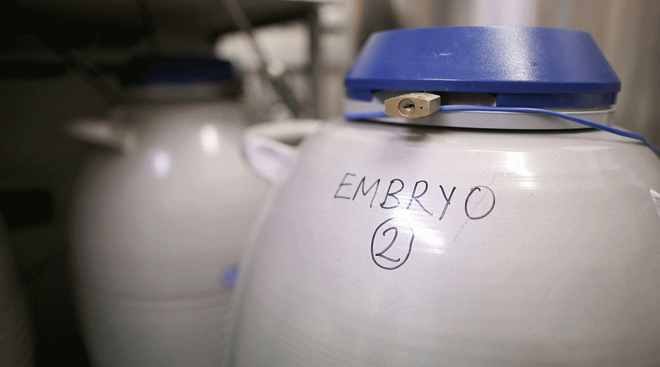Frozen Embryos Linked to Increased Risk of High Blood Pressure
A new study in the American Heart Association (AHA) journal Hypertension has found fertilization with frozen embryos to be associated with a considerably higher risk of high blood pressure-related pregnancy complications.
Compared to women who conceived naturally, those who used frozen embryos during IVF were 74 percent more likely to develop hypertensive disorders during pregnancy. In contrast, those who used fresh embryos did not see an increased risk.
The findings come as a shock to many who previously believed frozen and fresh embryo transfers to have equal risks. “Frozen embryo transfers are now increasingly common all over the world, and in the last few years, some doctors have begun skipping fresh embryo transfer to routinely freeze all embryos in their clinical practice, the so-called ‘freeze-all’ approach,” lead study author Sindre H. Petersen, MD, said in a news release. "Our results highlight that careful consideration of all benefits and harms is needed before freezing all embryos as a routine in clinical practice.”
While no change in the birth rates when using frozen versus fresh embryos has been observed, the increased risk of high blood pressure complications still warrants an extensive conversation around fresh or frozen. High blood pressure, or hypertension, disorders during pregnancy, including preeclampsia, can endanger the health and life of the mother and fetus. In the US, roughly 1 in 25 pregnancies results in preeclampsia.
Not all scientists are convinced that the spike in high blood pressure is due to the frozen embryo itself as much as the process in which it is transferred. The different ways the uterus is prepared for transfer has been pointed to as a possible risk factor, with even the study’s authors agreeing that additional research is needed to investigate what part of the process might be increasing hypertension risk.
So what are parents to do with all this information? The AHA suggests that parents-to-be talk with their doctor about what method, fresh or frozen, may be best for them. The idea isn’t to scare parents that their frozen embryos will cause problems but to open up a dialogue about how to minimize potential issues.
“Our results highlight that careful consideration of all benefits and potential risks is needed before freezing all embryos as a routine in clinical practice,” Petersen said. “A comprehensive, individualized conversation between physicians and patients about the benefits and risks of a fresh versus frozen embryo transfer is key.”
Learn more about IVF and how to boost your odds of getting pregnant here.
Please note: The Bump and the materials and information it contains are not intended to, and do not constitute, medical or other health advice or diagnosis and should not be used as such. You should always consult with a qualified physician or health professional about your specific circumstances.
Navigate forward to interact with the calendar and select a date. Press the question mark key to get the keyboard shortcuts for changing dates.





















































